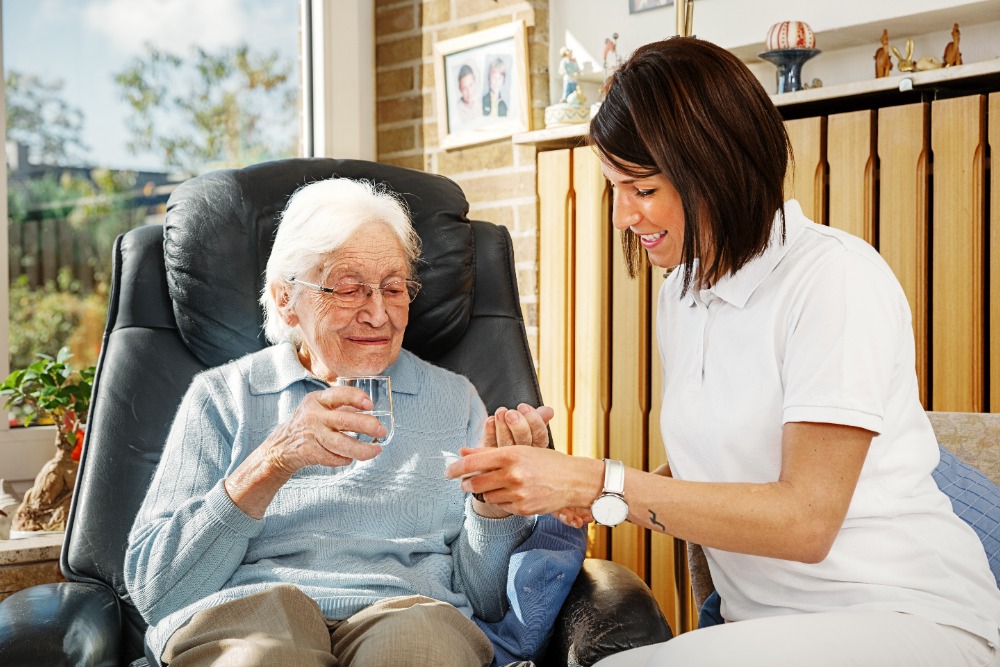Why are so many people in America dying from cancer? The rates of cancer diagnoses and deaths have skyrocketed across the United States over the last decade. Analysts project that nearly two million Americans will be diagnosed with cancer by the end of 2022. That is staggering.
The COVID-19 pandemic certainly didn’t help because it caused many people to stay home and skip their routine doctor’s appointments. That means people were not getting cancer screenings and check-ups for at least two years before the pandemic restrictions were lifted.
People under 40 never used to be at such a risk of getting cancer as they are now. The higher cancer risk can be associated with poor lifestyle and health choices, such as obesity, sedentary lifestyles, poor nutrition, etc.
Primary care physicians are supposed to help guide patients in overcoming these challenges during regular patient-doctor sessions. But are they doing a good enough job addressing these lifestyle and health issues with their patients? If physicians practice under the fee-based service model, they are probably not doing a good enough job.
The Cancer Risks of Seniors
Older people have a higher risk of cancer, regardless of their lifestyle. That is why it’s imperfect for senior patients to establish a trusting relationship with their primary care physicians. But that can only happen under the value-based care model because it allows doctors and patients to spend more time together during each session.
Under the fee-based model, doctors will tell their senior patients to undergo chemotherapy if diagnosed with cancer. The problem is that many people don’t trust chemotherapy, nor do they have the money for it. Furthermore, the quality of life under chemotherapy is not that great anyway.
Numerous studies have shown that a close patient-doctor relationship can significantly reduce a senior patient’s chances of getting a cancer diagnosis or worsening cancer symptoms. Doctors can do less harm if they stop looking for a quick fix to a patient’s problems and start thinking about long-term practical solutions.
The Benefit of Value-Based Care for Senior Cancer Patients
The value-based care establishes a more effective primary care setting for senior cancer patients. In fact, seniors can benefit under the value-based care model before even getting a cancer diagnosis because the source of their medical issues or symptoms gets addressed immediately.
If you are a primary care provider who wants to use the value-based care model to treat and prevent cancer in your patients, you can use the following three strategies below:
1) Manage Chronic Illnesses
Traditional doctors base their cancer treatment strategies on clinical trial data. The problem is that most clinical trials are performed on younger patients with little to no health issues.
Since many senior cancer patients also suffer from chronic health issues, their primary care physicians must manage them before administering chemotherapy. That way, chemotherapy won’t be as physically draining for the patient, and they can focus more on their cancer treatments.
2) Educate the Patient
Primary care physicians must educate their patients on their illness and explain it to them in layperson’s terms. If a patient can understand the severity of their illness and the practical steps they need to take to treat it, they will most likely take those steps without any resistance.
Under a fee-based system, a primary care physician or oncologist will give a general overview of a patient’s illness without any real plan to overcome it. If a particular treatment is recommended, the patient may not understand what to expect during and after the treatment. This will make them less likely to want to get it.
The value-based system eliminates these insecurities because the oncologist or primary care physician sits down with the patient and takes the time to explain it to them so they understand it.
3) Take an Integrated Treatment Approach
A primary care physician understands their patient’s health better than any other health professional. However, an oncologist specializes in diagnosing and treating cancer, so you must consult with them if your patient has cancer.
Primary Medical Care Center has created an environment where primary care physicians and medical specialists work under the same roof. Our physicians collaborate with our oncologists to ensure we provide the best possible treatment and care to our senior cancer patients.
Does your medical facility have oncologists and other medical specialists on staff? If not, you need to change this because the close collaboration of primary care physicians and specialists will significantly benefit your patients.
Learn More
Would you like more information on how the value-based care model can reduce the risk of cancer in senior patients? Call the Primary Medical Care Center at (305) 751-1500 to learn how our primary care physicians use the value-based care model to create a transformational chronic care treatment plan to help senior patients live longer and happier.
